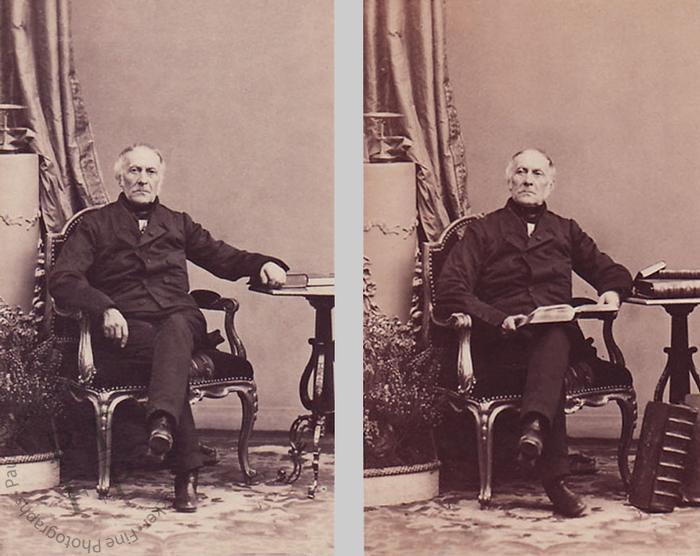François Guizot
(1787-1874)
The son of a Protestant family of Nimes, the statesman and historian François Guizot was educated at Geneva. He began a legal career in Paris in 1805, but soon took up literary work and later became a professor of modern history at the University of Paris. His lectures there formed a centre of political opposition to the Restoration. His friendship with Royer-Collard and his sympathy with the moderate royalists soon drew him into minor political office. As an opposition deputy he was involved in the July Revolution of 1830 and became one of the leading exponents of the bourgeois July Monarchy of Louis-Philippe. As minister of public instruction (1832-1837), Guizot introduced (1833) a new system of primary education. Turning more and more to conservatism, he became (1840) the chief power in the ministry nominally headed by Soult, who had displaced the more liberal Thiers as premier. In 1847 Guizot became premier. His leadership provided a stable government, but his complacent acceptance of the established order led to his overthrow in the February Revolution of 1848, which forced the abdication of Louis-Philippe. Guizot devoted the rest of his life to writing. The best know of his works, Histoire de la Revolution d’Angleterre (6 volumes, 1826-1856), illustrates his critical approach and his devotion to original sources as well as his admiration for middle-of-the-road British revolutionism. He also wrote Memoires pour servir à l’histoire de mon temps (8 volumes, 1858-1867) and the brilliant General History of Civilization in Modern Europe (6 volumes, 1829-1832; translated by William Hazlett, 3 volumes, 1846). This last work, never completed, covers principally the civilization of France up to the 14th century.

